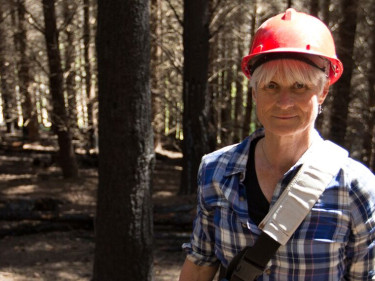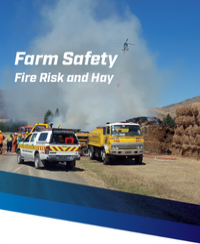Machinery is commonplace in rural areas. However, using machinery unsafely or failing to maintain machinery can increase the risk of starting a fire.
Storing fuel and other chemicals
- Store petrol, diesel fuels and chemicals in clearly-labelled, approved containers and in single-purpose locations away from other farm buildings.
- Keep areas clean of rubbish, oily rags, firewood and other fuel sources.
Farm maintenance
- Fit suitable fire extinguishers in farm buildings and on machinery.
- Keep trees and branches at least 3 metres clear of power lines. Contact your local power authority to have branches cleared.
- Keep paddocks around farm buildings and yards well grazed to reduce the fire hazard during dry conditions.
Hay baling
Dry hay before baling and stacking to prevent spontaneous combustion.
To avoid losing your precious winter feed there are some measures that can be applied to reduce the risk of combustion:
Using and maintaining machinery
Find out how you can reduce the risk of wildfire on checkitsalright.nz:
Before you start, check the current fire danger level and other conditions:















